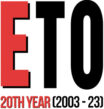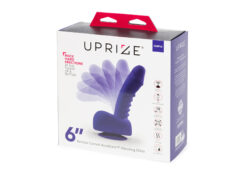Lelo has released a statement announcing that the US Patent Office (USPTO) has issued an office action in its re-examination of Bruce Murison’s We-Vibe patent 7,931,605. The office action rejected all of the patent claims-at-issue in the reexamination. According to the company, the USPTO’s rejection of the We-Vibe patent follows Lelo’s request for ex parte reexamination, which Lelo filed on October 21st 2013, and on November 11th 2013 the USPTO issued an order finding a “substantial question of patentability” of the We-Vibe patent.
Lelo says that in this office action, the USPTO has now rejected the We-Vibe patent based on several prior art references that were never considered when the patent was first examined, including at least two prior art patents (Mitchener US Patent 4,574,791 and Kain US Patent 5,690,603) and two prior art publications (one on a massager product called Femipet and one on a massager product called Ultime). Lelo says that by rejecting all of the patent claims that Standard Innovation is arguing are infringed by Lelo’s Tiani and Tiani 2 Couples’ Massagers, the office action agrees with Lelo’s request that these claims are not patentable in view of the prior art.
The Lelo statement continues: “This office action is yet another step by the USPTO suggesting that the We-Vibe patent claims are invalid. Standard Innovation Corporation, the owner of the We-Vibe Patent, declined to file a patent owner statement following the USPTO’s decision ordering reexamination of their patent. The USPTO thus moved forward with the reexamination, rejecting all of the patent claims for which reexamination had been requested. Standard Innovation now has two months to file a response to the office action, addressing each of the rejections made by the patent examiner. Unless they can convince the patent examiner that the rejections are incorrect and the claims are each patentable over the cited references, the patent examiner will likely issue a final office action rejecting the claims. At which point Standard Innovation’s options become more limited as they may be forced to appeal the patent examiner’s decision.”




![20 years of ETO: Harmony, Charing Cross Road, London [reprinted from issue 1, July 2003]](https://www.erotictradeonly.com/wp-content/uploads/2023/08/NEWS_20YEARS_HARMONY_ISSUE1-238x178.jpg)











